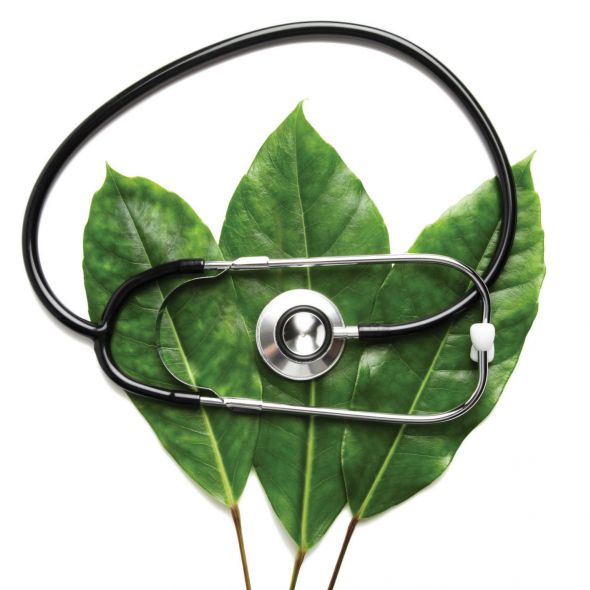What is a Holistic Doctor?
Holistic doctors are like any medical doctor. They typically possess a medical degree and are trained and educated in traditional medicine. They can address normal medical needs like traditional medical doctors. However, they also believe in the principles of holistic medicine—meaning that the mind, body, and soul, or emotions, are interconnected.
They tend to apply alternative and conventional methods which encourage and treat the mental, emotional, physical, and spiritual health to ensure an overall balance in the body resulting in a patient’s overall health. For instance, rather than just give you aspirin or pills for ongoing headaches that treat the pain, they may explore your diet, exercise, stress levels and a variety of mind/body factors that could be creating the headaches. In other words, they don’t just treat the symptoms, they find and treat the root causes of disease.[1] Allopathic, or traditional medicine, surgery or other conventional treatments, may also be used.
What do Holistic Doctors Do?
Holistic doctors do what any medical doctor does—and more. Whereas a traditional medical doctor will have you fill out a form in the waiting room, look at it for five minutes, and ask you a few questions before handing you a prescription and leaving, a holistic doctor will spend time with you. They will often invest up to an hour or more on an initial visit, to find about about


your lifestyle, interests, diet, exercise, family life, upbringing, and work. Because they operate on the belief that everything, from the food we eat, the work we do, the job we have, our family and friends, exercise or lack of exercise, type of exercise, and our attitudes, beliefs, and personality all impact our health, they take time to find out as much as they can about your lifestyle. You can’t find out how to treat someone you know little to nothing about. Because they know that all systems of the body are impacted by what happens to another, they take time to understand your system. Conventional medicine treats the symptoms of a disease or imbalance. Holistic doctors seek out the root cause of the disease and heal it.
What is a Holistic Doctor Called?
The term “doctor” is a protected term in the United States and Canada. A protected term is a phrase, or more commonly a title, that has restrictions and requirements as to who may use it. For instance, an individual or organization must have the express permission of a governing or controlling body in order to use the term and that use is usually dependent on having obtained specific qualifications, education, or completion of the required recognized training and licensing or certification.[2]
Because protected terms are regulated by law, they will vary from state-to-state and even jurisdiction to jurisdiction.
Protected terms in the United States include:
- Chiropodist
- Chiropractor
- Dietitian/Dietician
- Medical Practitioner
- Medical Doctor
- Osteopath
- Psychologist
- Podiatrist
- Physiotherapist/Physical therapist
That said, holistic doctors are often medical doctors with a holistic oriented practice. Some people may also refer to naturopaths, chiropractors, homeopaths, and naturopathic physicians as “holistic doctors,” although not all are technically doctors.
Is a Naturopath a Medical Doctor?
A naturopathic physician or ND, is a medical doctor if they graduate from a four-year, accredited naturopathic medical school. Naturopathic medical schools, like any medical school, are four-year, in-residence, hands-on medical programs consisting of a minimum of 4,100 hours of class and clinical training. During naturopathic medical school, students are educated in the biomedical sciences as well as the latest advances in science in combination with natural approaches to therapy. They also study disease prevention and clinical techniques.
In addition to a standard medical curriculum, these schools require their graduates to complete four years of training in disciplines such as clinical nutrition, acupuncture, homeopathic medicine, botanical medicine, physical medicine, and counseling. For at least the final two years of their medical program, naturopathic medical students intern in clinical settings under the close supervision of licensed professionals.


According to The American Association of Naturopathic Physicians, the general educational structure for naturopathic doctors is comparable to that of conventional medical doctors (MDs) and osteopathic doctors (DOs). In all three medical programs, the first year emphasizes biomedical sciences such as anatomy and biochemistry. Second-year classes focus on the diagnostic sciences, including areas such as evidence-based medicine and physiological assessment. All programs progressively increase students’ problem-based learning and integrated coursework, enabling students to learn how different concepts affect one another.[3]
By using protocols that minimize the risk of harm, naturopathic physicians help facilitate the body’s inherent ability to restore and maintain optimal health. It is the naturopathic physician’s role to identify and remove barriers to good health by helping to create a healing internal and external environment.
Naturopathic physicians work in private practices, hospitals, clinics and community health centers. NDs practice throughout the United States and Canada. Qualified naturopathic physicians undergo rigorous training before they become licensed health-care practitioners.
Treatments You Can Expect
NDs and holistic doctors treat all the medical conditions allopathic doctors do, just with different methods. Where a conventional medical doctor might write a prescription, or trust pills to eliminate or reduce symptoms, a holistic doctor may prescribe exercise, a change in diet, or homeopathic remedies. They may also you to take up tai chi, or yoga, or bathe more or less frequently. They can also provide both individual and family health care. Among the most common ailments they treat are allergies, chronic pain, digestive issues, hormonal imbalances, obesity, respiratory conditions, heart disease, fertility problems, menopause, adrenal fatigue, cancer, fibromyalgia and chronic fatigue syndrome. NDs can also perform minor surgeries, such as removing cysts or stitching up superficial wounds. However, they do not practice major surgery. NDs are trained to utilize prescription drugs, although the emphasis of naturopathic medicine is the use of natural healing agents.[4]
A major difference between the training of the MDs and naturopathic doctors is medical residencies. MD residencies are mandated and regulated by conventional medical schools. As a result, many opportunities for residencies exist at a wide variety of medical facilities and are funded by the federal government. Naturopathic medical residencies are not nearly as common because they are not yet required by most states (Utah is an exception) or funded by the federal government. In place of a residency, many new naturopathic doctors choose to practice with or shadow an experienced doctor before setting up their own practices. [5]
Is a Homeopathic Doctor a Medical Doctor?
The term “homeopathic doctor” is a label applied to physicians, or sometimes non-physicians, who claim to practice Homeopathic Medicine. However, there is no license or recognized medical school for Homeopathic Medicine in any state in the United States. The term implies a school of thought or treatment, which, in many cases rests on natural or alternative remedies. Homeopathic medicine stresses minimal quantities of various ingredients to treat varying conditions. It is a popular form of alternative medicine. One great contribution of homeopathy to modern medicine was a stress on wellness.


Naturopathic medicine is holistic medicine and is a distinct primary health care profession, that emphasizes the prevention, treatment, and optimal health through the use of therapeutic methods and substances that encourage individuals’ inherent self-healing process. The practice of naturopathic medicine includes modern and traditional, scientific, and empirical methods. Naturopathic practice includes many of the same procedures and modalities that allopathic medicine does, including: diagnostic and therapeutic modalities, clinical and laboratory diagnostic testing, nutritional medicine, botanical medicine, naturopathic physical medicine (including naturopathic manipulative therapy), public health measures, hygiene, counseling, minor surgery, homeopathy, acupuncture, prescription medication, intravenous and injection therapy, and naturopathic obstetrics (natural childbirth).
What’s the difference between Naturopathic physicians and Naturopaths?
In some countries, including the US and Canada, there’s a difference between ‘naturopathic physicians’ and ‘naturopaths’ (also known as ‘traditional naturopaths’). In many places, naturopathic practice is not regulated by law, so anyone can claim to be a naturopathic practitioner. Be careful not to go to a practitioner with no training.
- Naturopathic physicians train at a naturopathic medical school and earn an ND (‘Naturopathic Doctor’) or NMD (‘Naturopathic Medical Doctor’) degree. They have more of a background in conventional medicine and are often subject to more strict professional licensing regulations. If you’re looking for more of a CAM (Conventional and Allopathic Medicine) practice, where the doctor uses both alternative and allopathic remedies and treatments a naturopathic physician is a good choice.
- Traditional naturopaths attend schools with varying curricula and graduation requirements. They are likely to lean more towards more purely alternative therapies. In most places, they are ineligible to practice medicine. If your beliefs also lean towards a wholesale rejection of conventional medicine, a traditional naturopath may very well fit your requirements.
Find out if your state allows naturopathic practitioners
Regulations and laws governing naturopathy vary dramatically between regions and states. Some states allow naturopathic practitioners to prescribe drugs and perform some minor surgery. Some states, like Tennessee and South Carolina, forbid any kind of naturopathic practice. Find out what the laws in your jurisdiction allow naturopathic practitioners to do.
[1] https://www.leaf.tv/articles/what-is-a-holistic-doctor/
[2] https://rationalwiki.org/wiki/Protected_term
[3] https://www.naturopathic.org/natfaqs#Trained%20and%20Licensed
[4] https://www.naturopathic.org/natfaqs#Trained%20and%20Licensed
[5] https://www.naturopathic.org/natfaqs#Trained%20and%20Licensed
